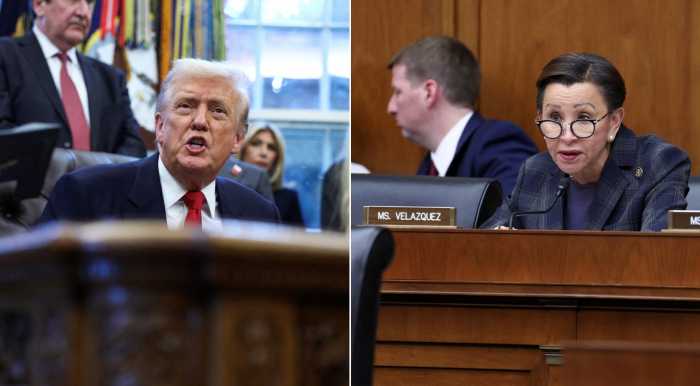John Kerry was against a federal marriage amendment before he endorsed a state marriage amendment in his home state of Massachusetts.
Many pundits have argued that the same-sex marriage issue, sizzling hot by November 2004, one year after the historic pro-gay ruling from the Massachusetts Supreme Judicial Court, doomed the Democrats’ chances in 2004. That analysis ignores the most fundamental data on the question. State constitutional amendments against same-sex marriage were contested in only three of the generally agreed-upon battleground states that year—Michigan, Ohio, and Oregon. Although the amendments carried easily in each of these states, Kerry won two of them, and came very close in Ohio.
John Kerry voted for the $87 billion in additional spending on Iraq, before he voted against it. That sound bite, repeated endlessly by the Republicans and the media, is also widely cited as a decisive factor in the Democrat’s loss. But that unfortunate wording only had salience because Kerry essentially offered the American people an untenable position on George W. Bush’s catastrophic foreign policy blunder.
Kerry was among those Democrats who, in the fall of 2002, gave the president carte blanche to pursue his adventurism.
Senator Russ Feingold, the Wisconsin Democrat, was not a member of that group. In fact, in an impassioned floor speech on October 11, 2002 that now serves as proof of his prescience, he said, “Both in terms of the justifications for an invasion and in terms of the mission and the plan for the invasion, Mr. President, the administration’s arguments just don’t add up. They don’t add up to a coherent basis for a new major war in the middle of our current challenging fight against the terrorism of al Qaeda and related organizations.”
By laying out that reasoning and courageously standing up to the rush to allow no room between Congress and the president, Feingold guaranteed that he, unlike Kerry, could challenge the Bush foreign policy legacy with credibility. His recent call to censure the president over what many say is an illegal wiretapping program has not gained significant support among his Democratic colleagues because they continue to cower against the risk that they too will be swift-boated if they defy the administration and its political Rasputin, Karl Rove. But, in fact, members of Congress have been surprised to learn that many of their constituents back home believe that Feingold’s resolution deserves a careful look, and certainly reasoned, as opposed to hysterical, discussion.
Let’s be clear. Kerry didn’t lose over his swift boat experience in Viet Nam (which was impressive), his growing opposition to Bush’s war, or because his state was marrying gay and lesbian couples. He lost because fundamentally he wouldn’t tell the American people who he is. Fearful of an emboldened, Christianized Republican Party, Kerry was unable to cut the Gordian knots—the obstacle that myth says Alexander the Great overcame on his road to conquering Asia. The knots facing the Democrats in 2004 were embodied most vividly in a failing U.S. foreign policy and war on terror, the growing backlash against a woman’s right to choose, and the right’s crusade against LGBT equality.
Kerry dithered on these challenges. Like Kerry, Hillary Rodham Clinton, the current Democratic presidential front runner, may go down the same road. She was an early and strong supporter of the U.S. incursion into Iraq, she has reportedly ordered her husband—the former president!—to keep his newly developed anti-war views to himself, she has sent words of reconciliation to abortion foes, and, of course, she opposed same-sex marriage before she endorsed civil unions.
Russ Feingold is charting a different course. Facing a constitutional amendment barring same-sex marriage in his own state this November, he declared his support for marriage equality this week.
“Denying people this basic American right is the kind of discrimination that has no place in our laws, especially in a progressive state like Wisconsin,” he said, specifically endorsing gay marriage.
As America begins to think about 2008 and how to steer the nation out of the blight of the Bush years, many will look for genuine alternatives. Should Feingold choose to run for president, he can credibly claim that with his past as prologue, he is looking with clear eyes to the future.
gaycitynews.com













